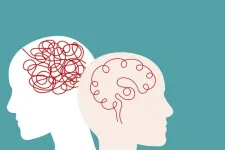(Press-News.org)
Preview blurb: Geisel’s new fully online 9-month MS in Implementation Science will give graduates the skills to identify and address gaps in moving evidence-based clinical practices into routine use in the real world.
HANOVER, NH - “How can we more quickly and effectively move new, proven scientific evidence into routine healthcare practice? What obstacles must be overcome to embrace change and modify behavior? How can we scale a successful intervention so that more people will benefit?”
These are some of the key questions future students will learn to tackle as enrollees of a unique new graduate degree program—a Master of Science (MS) in Implementation Science (IS)—which will be offered by Dartmouth’s Geisel School of Medicine in partnership with the Guarini School of Graduate and Advanced Studies beginning in September of 2025.
Implementation science is a burgeoning field that draws upon a rich and diverse set of established research traditions to address persistent gaps in moving evidence-based clinical practices into routine use in the real world.
“In other words, implementation scientists identify programs and policies that work, and collaborate with stakeholders to get people to actually use or follow them,” explains Jeremiah Brown, PhD, a professor of epidemiology at Geisel and founding director of the Dartmouth Center for Implementation Science (DCIS).
Established last summer and housed at Geisel, DCIS serves as an academic home for IS research at Dartmouth, and as an axis for faculty, staff, and students to develop expertise in implementation science.
“We’re very pleased to be launching our new MS in Implementation Science degree program,” says Duane Compton, PhD, dean of Geisel. “We experienced the need for how to put evidence-based knowledge into everyday practice, and through that we recognized that there is a dearth of education programs to train individuals with skills in implementation science. Thus, this new degree program will allow us to contribute to the rapidly increasing demand for trained experts in the field, and further position Dartmouth as a leader in implementation science nationally.”
The new graduate program will offer several distinctive features that will draw strong interest, especially from early-to-mid career professionals that want to develop expertise in the discipline.
Dartmouth’s MS in Implementation Science will be one of the first standalone master’s programs in implementation science to be launched in the U.S.—currently, there are very few comprehensive training programs available in IS, as most are offered as part of other master’s programs.
“It will also be the first fully online graduate program at Geisel—offered either over nine months or 18 months,” says Brown, who notes that the program will launch at the same time as the medical school’s MS in Health Data Science. “Having that format will give us the flexibility to provide a world-class program taught by national experts, at least a third of whom are based at other leading institutions across the country.”
“The MS in Implementation Science will be Dartmouth’s second fully online master’s degree, following the launch of Thayer’s online program earlier this year,” says Joshua Kim, PhD, assistant provost for online learning strategy at Dartmouth College. “This new fully online MS in Implementation Science demonstrates Dartmouth’s commitment to serve a global audience of diverse learners with a Dartmouth quality education.”
The program will launch with 30 graduate students with a target of 50 students annually to be achieved within two to three years and will include international enrollment. Core competencies will be designed to prepare students to assume leadership roles in implementation science across many settings—whether it be in healthcare, academic or clinical research, public health, state education, or policy work. Admissions for next year’s inaugural class are open now.
Curriculum
The program’s foundational curriculum, drawing from expertise across Dartmouth and international experts in implementation science, will provide coursework on: IS theories, models, and frameworks; implementation strategies and measures; study design; research approaches, including community engagement and participatory research; mixed methods for qualitative and quantitative data collection, analysis, and interpretation; adaptation and fidelity of interventions; and sustainment and sustainability in IS.
Advanced and emerging topics will include de-implementation; global implementation science; digital health implementation; IS experimental designs, implementation costing measures and cost-effectiveness analysis, scaling-out interventions, and dissemination of evidence-based interventions.
In addition to the core coursework, each student will complete a Capstone IMPACT Project (1.0 unit) that spans the entire program—stay tuned for more details.
For more information about the new MS in Implementation Science program, visit our Admissions siteor click here to request information.
# # #
END
World-renowned physicians and scientists will gather at the Houston Methodist Research Institute September 17-18 to discuss pioneering research discoveries and technologies in neuroscience that have the potential to transform the field and evolve into innovative treatments for neurological disorders of all kinds.
Hosted by the Houston Methodist and Rice University Center for Neural Systems Restoration, the symposium brings together experts in the field of neural circuits, neural technology and neuro-restoration. Twenty-four speakers will highlight the ...
More accurately predicting periods of increased hurricane activity weeks in advance may become possible due to new research published this month.
The study, led by the U.S. National Science Foundation National Center for Atmospheric Research (NSF NCAR), shows that twice as many hurricanes form two days after the passing of large-scale atmospheric waves called Kelvin waves than in the days before. This finding may enable forecasters and emergency managers to anticipate clusters of hurricanes days to weeks in advance.
The research team used an innovative ...
Gender nonconformity in 7-year-olds — as measured by levels of gender-conforming play — may be associated with autistic traits and behavioral difficulties in girls, and with peer relationship problems in boys, according to a new study published August 28, 2024 in the open-access journal PLOS ONE by Marlene Stratmann of Karlstad University, Sweden, and colleagues.
Gender nonconformity (GNC) refers to variations in gender expression from societal and cultural gender norms. In childhood, GNC can manifest itself in several ways, including play behavior, peer relationships, clothing, and body language. Childhood GNC does not directly indicate developing gender ...
A new study finds that, counter to expectations, geographic disparities in rates of homicides in the US have decreased in recent decades. Richard Boylan of Rice University in Houston, Texas, US, presents these findings in the open-access journal PLOS ONE on August 28, 2024.
Since the 1970s, gaps in economic and social wellbeing between Americans living in different regions have grown. Some researchers hypothesize that areas with reduced economic and social well-being would see higher rates of violent crime. For instance, impoverished areas with lower tax bases might receive less police protection, ...
Slow growth in health sector spending is projected in Sub-Saharan Africa as reported in a study published in the open access journal, PLOS Global Public Health. The decline is expected to continue to 2050, according to Angela E Apeagyei and researchers at the Institute for Health Metrics and Evaluation, University of Washington, Seattle, and is driven by tepid growth in the share of government spending that is allocated to health and reductions in development assistance for health.
The research analyses data from databases covering development assistance for health, global health spending and gross domestic spending (GDP) per capita ...
Diagnostic labels for people experiencing what some consider to be relatively milder forms of mental-ill health may affect how others perceive them for better and worse, according to a study published August 28, 2024 in the open-access journal PLOS Mental Health by Nick Haslam from the University of Melbourne, Australia, and colleagues.
In recent years, there’s been a general shift to increased diagnoses of mental ill-health. Here, Haslam and colleagues investigate the implications of diagnosing individuals presenting with ...
“Unhealthy commodities” such as tobacco, alcohol, ultra-processed foods, social media, and fossil fuels, as well as impacts of fossil fuel consumption such as climate change and air pollution are associated with depression, suicide, and self-harm, according to a study published August 28 by Kate Dun-Campbell from the London School of Hygiene & Tropical Medicine, and colleagues.
Globally, around one out of every eight people currently live with a mental health disorder. These disorders—including depression, suicide, anxiety, and other diseases and disorders—can have many underlying causes. ...
Bacterial cells can “remember” brief, temporary changes to their bodies and immediate surroundings, a new Northwestern University and University of Texas-Southwestern study has found.
And, although these changes are not encoded in the cell’s genetics, the cell still passes memories of them to its offspring — for multiple generations.
Not only does this discovery challenge long-held assumptions of how the simplest organisms transmit and inherit physical traits, it also could be leveraged for new medical applications. For example, researchers could circumvent antibiotic resistance by subtly tweaking a pathogenic ...
If you’ve seen those viral social media videos of dogs using soundboard buttons to “talk,” you’re not alone. These buttons have taken the pet world by storm, leading to impressive and sometimes seemingly miraculous feats shared across platforms like TikTok and Instagram. But are these dogs truly communicating, or are they just responding to cues from their owners?
Now, a new study published in PLOS ONE – by researchers from the University of California San Diego and other institutions – ...
Researchers at the University of Massachusetts Amherst and UMass Chan Medical School have demonstrated in mice a new method to combat pancreatic cancer. The study, published in Science Translational Medicine, outlines the synergistic effects of a novel nanoparticle drug-delivery system to activate an immune pathway in combination with tumor-targeting agents.
Pancreatic ductal adenocarcinoma (PDAC) is the most common form of pancreatic cancer. With a dismal,13% five-year survival rate, it is the third leading cause of cancer deaths.
One major ...







